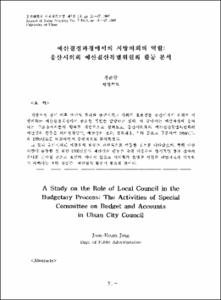Thomas De Quincey's Confessions
- Alternative Title
- 토마스 드퀸시의 고백록
- Abstract
- 드퀸시 시절에 아편은 오늘처럼 금지된 마약이 아니었으나 그 오용에 대한 경고는 늘 있어왔고 아편중독은 물론 사회적으로 용납되는 것이 아니었다. 드퀸시의 고백록은 그의 장기적인 아편중독을 중심으로 쓰여진 자서전인데 다분히 구식투의 (전세기 바로크) 정치한 문체에도 불구하고 사람의 심층 정신세계에 대한 통찰의 철저함에 있어서 매우 현대적이다. 고백록은 경험과 토론과 환상을 섞고 일화적인 일탈이 많은 점을 앞세우면 산만한 인상을 주지만 책 전체에 관류하는 관심이 있어 서술에 통일된 분위기를 준다. 그것은 고통받는 인간 영혼에 대한 비죤이다. 이 글은 고백록의 비평이 아니라 그의 말을 되도록 많이 빌어 그의 경험을 뒤쫓아 정리한 해제로 쓰여진 것이다.
Opium was not a forbidden narcotic in De Quincey's days. Kike today's aspirin, it was commonly used as a normal remedy for all kinds of aches and pains and was freely sold in the formula of tincture in every apothecary's shop. (One might remember the fact that the British opium trade and the consequent war with China happened in his life time.) Nevertheless, there had been a constant warning against the danger of its abuse, and opium addiction was obviously understood as an offense against the social decorum of the day. De Quincey, who had "fifty and two years' experience" of the drug, wrote his elaborate Confessions with a thorough modern insight into the depth of the turbulent human psyche. He often becomes discursive when he grows sensitive to the dubious reputation of the drug and digressive in reporting his youthful wanderings. As a sustained autobiographical writing, the book appears to lack control mixing reminiscences, discussions, and fantasies, but there is one unmistakable temper that runs through-the haunted vision of the suffering human soul. Abstaining from any interpretive discussion, this essay re-presents De Quincey's extraordinary experiences with a liberal borrowing from his own work.
Opium was not a forbidden narcotic in De Quincey's days. Kike today's aspirin, it was commonly used as a normal remedy for all kinds of aches and pains and was freely sold in the formula of tincture in every apothecary's shop. (One might remember the fact that the British opium trade and the consequent war with China happened in his life time.) Nevertheless, there had been a constant warning against the danger of its abuse, and opium addiction was obviously understood as an offense against the social decorum of the day. De Quincey, who had "fifty and two years' experience" of the drug, wrote his elaborate Confessions with a thorough modern insight into the depth of the turbulent human psyche. He often becomes discursive when he grows sensitive to the dubious reputation of the drug and digressive in reporting his youthful wanderings. As a sustained autobiographical writing, the book appears to lack control mixing reminiscences, discussions, and fantasies, but there is one unmistakable temper that runs through-the haunted vision of the suffering human soul. Abstaining from any interpretive discussion, this essay re-presents De Quincey's extraordinary experiences with a liberal borrowing from his own work.
- Issued Date
- 1982
- Type
- Research Laboratory
- Alternative Author(s)
- 김길중
- Publisher
- 연구논문집
- Language
- kor
- Rights
- 울산대학교 저작물은 저작권에 의해 보호받습니다.
- Citation Volume
- 13
- Citation Number
- 2
- Citation Start Page
- 475
- Citation End Page
- 482
- Appears in Collections:
- Research Laboratory > University of Ulsan Report
- 파일 목록
-
-
Download
 000002024464.pdf
기타 데이터 / 762.17 kB / Adobe PDF
000002024464.pdf
기타 데이터 / 762.17 kB / Adobe PDF
-
Items in Repository are protected by copyright, with all rights reserved, unless otherwise indicated.